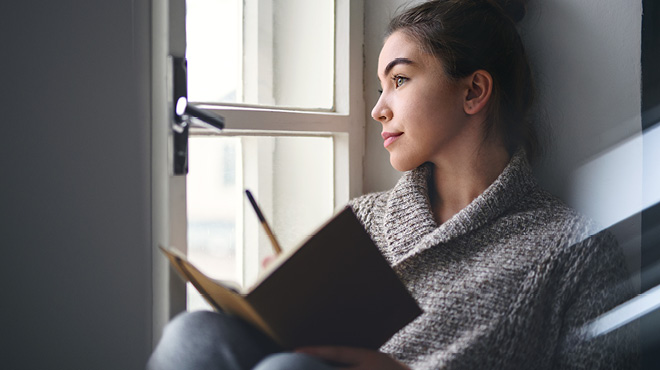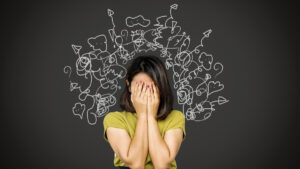
Coping Mechanisms for Anxiety: Finding What Works for You
Introduction
Anxiety is a common mental health condition that affects millions of people worldwide. Whether triggered by stress, genetics, or environmental factors, it can take a significant toll on your well-being. Thankfully, there are various coping mechanisms for anxiety that can help you manage symptoms and improve your overall mental health. In this article, we’ll explore different strategies and techniques for coping with anxiety, as well as tips for finding what works best for you.
What is Anxiety?
Anxiety is a feeling of worry, nervousness, or unease, typically about something with an uncertain outcome. While it is a normal response to stressful situations, when it becomes chronic or overwhelming, it may develop into an anxiety disorder. Common types include generalized anxiety disorder (GAD), social anxiety disorder, panic disorder, and specific phobias.
Chronic anxiety can impact your daily life, affecting your relationships, work, and general well-being. Understanding effective coping mechanisms for anxiety is crucial to improving your mental health and quality of life.
The Importance of Finding the Right Coping Mechanism
Everyone experiences anxiety differently, and what works for one person may not work for another. The key is to explore various coping mechanisms for anxiety and find what resonates with you. Effective strategies not only help reduce anxiety symptoms but also promote long-term emotional resilience. Here are several coping techniques you can try:
1. Mindfulness and Meditation
Mindfulness is the practice of being present in the moment, without judgment. By focusing your attention on the present, you can reduce feelings of worry and stress about the future. Meditation is a helpful tool to cultivate mindfulness, as it encourages deep breathing, focus, and relaxation.
How it helps:
- Calms the nervous system
- Reduces rumination
- Increases awareness of thought patterns
Tip: Start with just 5-10 minutes of mindfulness practice each day. Over time, gradually increase the duration to make it part of your routine.
2. Exercise
Physical activity has long been known to reduce anxiety and stress levels. Exercise promotes the release of endorphins, which are the body’s natural mood lifters. Regular exercise also improves sleep quality, which can be negatively impacted by anxiety.
How it helps:
- Reduces muscle tension and stress
- Boosts mood and energy levels
- Improves sleep patterns
Tip: Choose activities you enjoy, such as walking, yoga, or cycling, to make exercise a sustainable part of your life.
3. Breathing Exercises
Breathing exercises are simple yet effective tools to counteract anxiety. Techniques such as deep breathing and diaphragmatic breathing activate the parasympathetic nervous system, helping the body relax. By focusing on your breath, you can break the cycle of anxious thoughts and regain a sense of control.
How it helps:
- Relieves tension in the body
- Promotes relaxation
- Reduces the “fight-or-flight” response
Tip: Try the 4-7-8 breathing technique: Inhale for 4 seconds, hold your breath for 7 seconds, and exhale for 8 seconds.
4. Journaling
Writing down your thoughts and feelings can be a therapeutic way to release pent-up anxiety. Journaling helps you organize your thoughts and gain clarity on what is causing stress. It also allows you to reflect on progress and recognize patterns in your emotional responses.
How it helps:
- Provides an emotional outlet
- Promotes self-reflection
- Helps track triggers and progress
Tip: Try setting aside 10-15 minutes each day to journal your thoughts, focusing on how you feel and what’s on your mind.
5. Progressive Muscle Relaxation (PMR)
Progressive muscle relaxation involves tensing and then relaxing each muscle group in your body. This technique helps you become aware of physical tension and encourages relaxation. By systematically relaxing your muscles, you can reduce overall stress and anxiety.
How it helps:
- Reduces physical tension
- Increases body awareness
- Calms the nervous system
Tip: Start with your feet and work your way up to your head, holding each muscle group tense for about 5 seconds before relaxing.
6. Social Support
Having a support system is essential for managing anxiety. Whether it’s friends, family, or a therapist, talking to someone you trust can provide relief. Social support helps you feel understood and less alone, reducing feelings of isolation that often accompany anxiety.
How it helps:
- Provides emotional validation
- Reduces loneliness
- Offers new perspectives on stressful situations
Tip: Reach out to someone when you’re feeling anxious, even if it’s just to talk or share your feelings.
7. Cognitive Behavioral Therapy (CBT)
Cognitive Behavioral Therapy is a structured therapeutic approach that helps individuals identify and challenge negative thought patterns. CBT teaches you to reframe unhelpful thinking and develop healthier coping strategies. It is considered one of the most effective treatments for anxiety.
How it helps:
- Changes negative thinking patterns
- Provides tools for managing stress
- Increases emotional resilience
Tip: If you’re considering therapy, look for a licensed CBT therapist to guide you through the process.
8. Lifestyle Changes
Certain lifestyle changes can reduce anxiety in the long term. This includes eating a balanced diet, getting enough sleep, staying hydrated, and avoiding stimulants such as caffeine. Simple habits like maintaining a consistent daily routine can also provide a sense of stability and control.
How it helps:
- Improves physical well-being
- Regulates mood and energy levels
- Enhances mental clarity
Tip: Try to prioritize sleep and make time for activities that nourish your body and mind, such as cooking healthy meals or practicing self-care.
9. Limiting Exposure to Stressors
While it’s not always possible to eliminate stressors, limiting exposure to triggers can help reduce anxiety. Whether it’s taking a break from social media or setting boundaries at work, being proactive in managing external stress can lessen its impact.
How it helps:
- Reduces the frequency of stress triggers
- Increases a sense of control
- Encourages self-care and boundaries
Tip: Take a digital detox or schedule “off” time to recharge when life feels overwhelming.
10. Seeking Professional Help
If anxiety becomes overwhelming or persistent, seeking help from a mental health professional is essential. Therapy, medications, and other treatment options can provide additional support in managing anxiety. A professional can help you understand the root causes of your anxiety and guide you through effective coping strategies.
How it helps:
- Provides expert support
- Offers tailored treatment options
- Addresses underlying issues contributing to anxiety
Tip: Consider scheduling an appointment with a therapist or counselor if anxiety is affecting your daily life.
10 FAQs About Coping Mechanisms for Anxiety
- What are some natural ways to cope with anxiety? Meditation, exercise, and mindfulness are natural coping mechanisms that can help reduce anxiety.
- Can therapy help with anxiety? Yes, therapy, especially Cognitive Behavioral Therapy (CBT), is effective in managing anxiety.
- How do I know which coping mechanism works best for me? Try different techniques and observe how your body and mind respond to each. Everyone’s journey is unique.
- How long does it take to see results from anxiety coping strategies? Results vary, but consistency is key. It may take a few weeks to notice significant improvements.
- Can anxiety be cured? While anxiety may not be “cured,” it can be managed effectively with the right coping strategies.
- What if I don’t have time to practice mindfulness every day? Start with short sessions, such as 5-10 minutes a day, and gradually increase the duration as you get more comfortable.
- Is exercise really effective for anxiety? Yes, exercise helps release endorphins, which can reduce stress and improve mood.
- Can journaling help reduce anxiety? Yes, journaling provides an emotional outlet and can help organize anxious thoughts.
- Should I avoid caffeine if I’m feeling anxious? Yes, caffeine can exacerbate anxiety. Consider reducing your intake if you’re feeling stressed.
- When should I seek professional help for anxiety? If anxiety becomes overwhelming, persistent, or interferes with daily life, seeking professional help is recommended.
External Links
- American Psychological Association – Anxiety
- National Institute of Mental Health – Coping with Anxiety
- Mindful – Meditation Practices
By understanding and utilizing these coping mechanisms, you can find effective ways to manage anxiety and improve your quality of life. It’s important to remember that what works for others may not be the best fit for you, so don’t hesitate to explore different strategies to find what works best for you.
Image credit – mayoclinichealthsystem.org



1 thought on “Coping Mechanisms for Anxiety: Finding What Works for You”